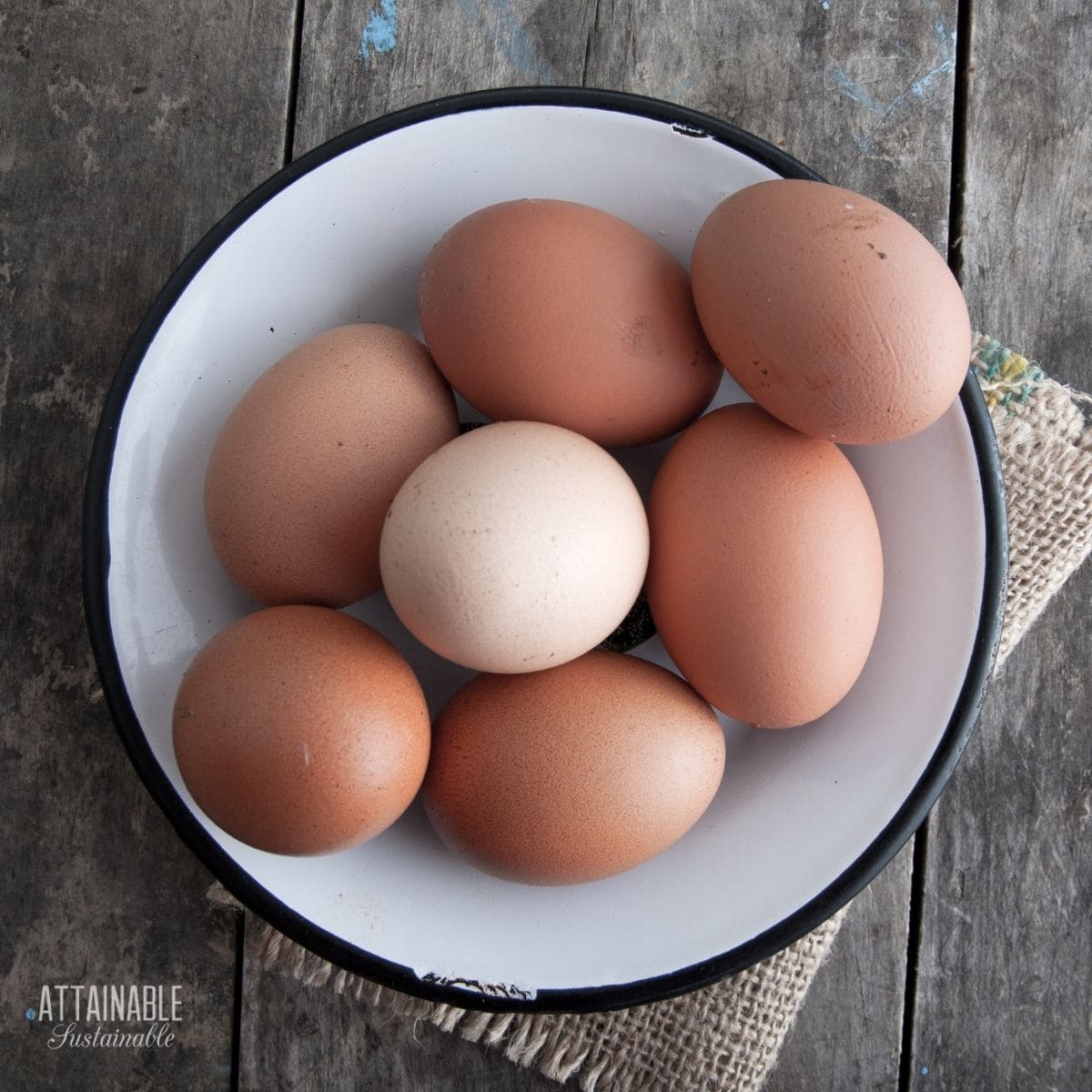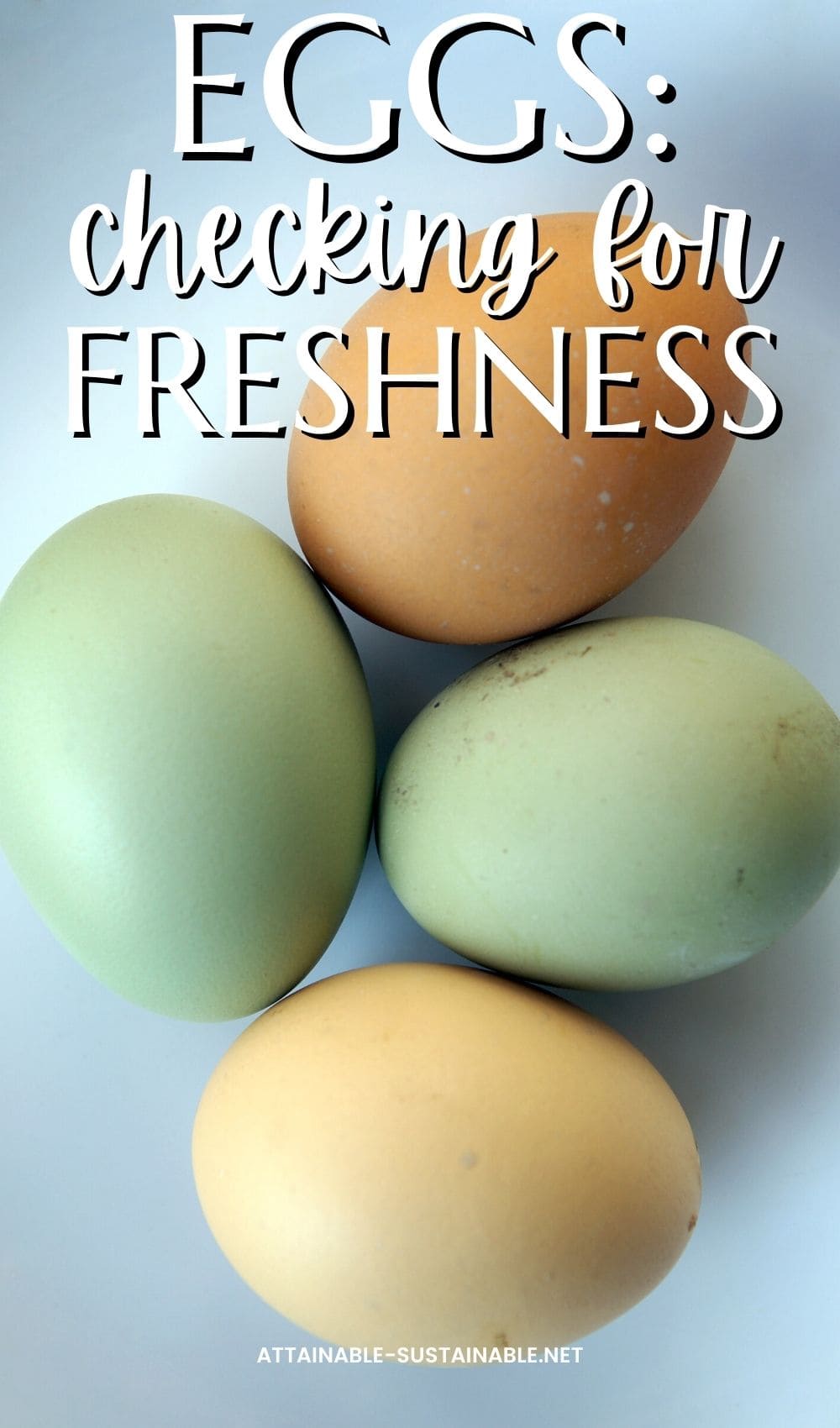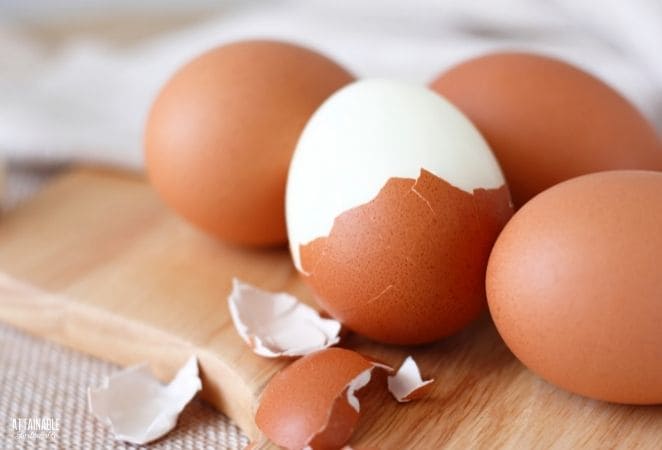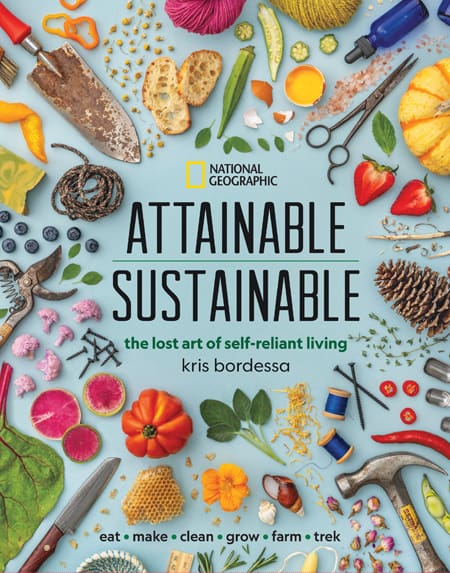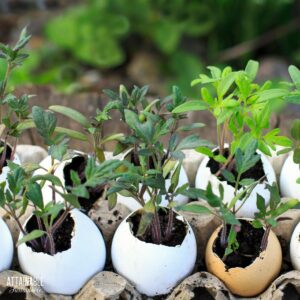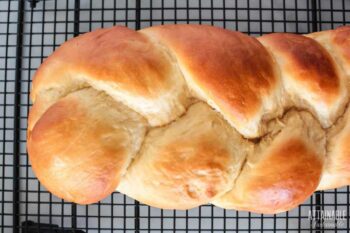Sometimes it’s tricky to tell if your eggs are still fresh. The good news is you can easily run a quick experiment to test eggs for freshness before you whip up those fried eggs for breakfast. All you need is a bowl of cold water and you’ll know in seconds which eggs are safe to eat.
New to cooking from scratch? You’ll find more kitchen skills to embrace here!
Are My Eggs Still Good?
According to the American Egg Board, eggs stay fresh for about 4-5 weeks beyond the pack date, or about 3 weeks after purchasing (source). If you buy your eggs at the grocery store, the carton will have a date (either a “best by” or “sell by” or expiration date), but that number doesn’t actually mean much.
The more helpful number is the packing date (written in code) on the side of each carton that indicates what day of the year the eggs were packed. But even if you know the exact packing date, if your eggs are approaching the 4-5 week mark, you might wonder if any eggs have gotten too old to eat.
And what if you buy your eggs fresh from a local farm? Or maybe you have backyard chickens and you gather your own eggs each morning.
Things can get even more complicated if you discover a hidden nest of free range eggs. How long have those girls been laying there? Are the eggs still good or ready for the compost pile?
That’s why it’s important to learn how to check if your eggs are still fresh.
The Easy Egg Float Test
Luckily, it’s actually very easy to tell if eggs are still good. It’s sometimes known as float testing or water testing (you’ll see why in a moment).
What you need:
- An egg
- A deep bowl or large glass
- Cold water
How to test eggs for freshness:
- Fill a deep bowl with enough cold water to completely submerge an egg.
- Gently drop the egg into the water.
- If the egg sinks to the bottom and stays on its side, it’s completely fresh.
- If the egg sinks to the bottom, but then floats at an angle or seems to stand on one end, it’s getting older but it’s still fresh enough to eat.
- If the egg floats, it’s no longer fresh and should be discarded.
The Science Behind the Water Test for Eggs
The float test for eggs isn’t a myth! It works because egg shells get more porous as they age. This causes air to enter through the shell and build up under the surface. Once the egg is too old, there’s enough air to cause the egg to completely float in water.
The Ideal Way to Use Older Eggs
Remember, if your egg floats, it’s no longer good and should be discarded. But what if it sinks and then floats at an angle while still touching the bottom?
These eggs are still good, if not exactly fresh. They are completely safe to eat, and they actually make the perfect candidates for hard boiled eggs! Older eggs are much easier to peel than fresh eggs, because of the air that builds up under the shell.
Storing Raw Eggs for Prime Freshness
Store eggs with the larger end up. This position keeps the air cell at the top, reducing the chances of harmful bacteria from making its way into the yolk, which is more prone to spoilage. This will help make fresh eggs last longer.

